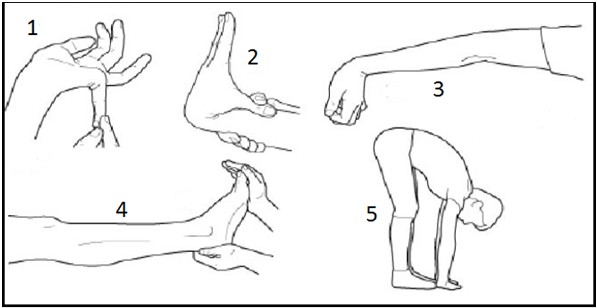My experience with Xyrem was pure hell. Since it's the date rape drug it's extremely dangerous and easy to abuse. Getting our hands on it took a solid year, and I had all my hopes riding on it. It simply didn't work. I learned that even this supremely powerful sedative isn't enough to allow me to sleep through my pain. Since it suppresses your breathing I couldn't just raise the dose willy-nilly. We started at an extremely low dose and eventually tripled it but it didn't make much of a difference either way. To try Xyrem I had to reduce the rest of my meds and since Xyrem didn't work that essentially equates to a first class ticket to hell. I used a Fitbit to track just how awful a typical night was. Posted below is two readings from the same night. My sleep was split up into two segments. Note that the bedtime is not when I fall asleep but when I go to bed. It took me many hours to fall asleep so I ended up with a few hours of sleep each night and I woke up at 5 am. Eventually my sleep schedule got so distorted I was pretty much nocturnal. Sleep deprivation amplifies pain and amplified pain causes sleep deprivation. To make matters worse I kept throwing up because xyrem tasted absolutely awful. Seriously, it might have been the worst thing I ever tasted. It wasn't a huge issue at first but as we raised the dose I had to gulp down more and more of it. Since I took Xyrem after my other meds (you're warned to to got to bed immediately after taking it because it's supposed to knock you out quickly) when I threw up that means I was throwing up all the other medications I had just taken. This means I had to retake them which caused a medication shortage crisis. I tried adding sweetener to the Xyrem but I still threw up more often than not, the sweetener tasted like shit too. It was a veritable cycle of torture. It was the third most stressful period of my life at the time, after the obvious ones. It lasted weeks. As I mentioned before, the levels of medication I was taking before starting Xyrem had a high risk of resulting in diabetes This is why I tried everything to get Xyrem to work. I was heartbroken when it didn't. I waited a year to get tortured for a few weeks with no positive results? Apparently so. We stopped Xyrem and re-raised the other meds. I had run out of time, university was starting.
It's hard to have a social life when all your friends have gone off to university and you're a 21 year old stuck in high school. A big part of the excitement was knowing I'll be seeing some old friends and finally having a great opportunity to make new ones. In terms of accommodations, Guelph gave me everything I asked for. A private room with no stairs to sleep in, the ability to take exams later in the day, getting a medical parking spot closest to my residence, and extensions when necessary, permitting the use of my medical marijuana. To start off I only took 2 classes, a history and political science course. My plan was to be a political science Major. I was hoping to go up to 3 classes next semester but constant sickness ruined that. I had 3 main goals: get decent grades, take safe levels of medication, and wake up at a reasonable time. Unfortunately doing all 3 of these goals at once is impossible so I temporarily gave up on the waking up early goal. This resulted in me sleeping in sometimes as late as 6:30 pm . However, I was successful in lowering medications for a little while. The medication that can cause diabetes (quetiapine) was lowered from 2000 to 1350. My doctor told me I should be safe if I can get down to 1200. The reason I had to take less courses in university than high school is that much of my leg pain threshold and energy is taken up by living on my own. I did my own laundry and learned some basic cooking. I have to pick up my own medication. When I lose something I sometimes have to look for it alone. No one can drive me to class if I'm feeling crappy, and having to get around campus to get to class and food joints is far harder than a 10 minute drive to high school. All of this takes legwork and increases pain levels. I primarily used my bike to get around campus because it was far less painful than walking since it's low stress on the joints. I'd say it was 80% less painful, which means it was still significantly painful. There are inevitably places I can't bring a bike which means lots of walking. It only started snowing a few days before I left Guelph for winter break but those few days were awful. Biking in a snowstorm results in a lot of falling down and a lot of windy snow clouding your vision. I started considering getting one of those scooters for those with disabilities. I needed all the downtime I could get to rest my legs so as soon as my situation improved I would raise my course load. There was real hope for that because I was on the priority wait list to see an EDS sleep specialist in Washington and booked an appointment to see a neuropsychiatrist to evaluate my medication situation. This news lifted my spirits greatly and there was a real chance of my life changing for the better in a significant way.





